We have a treat for all the history fanatics and literary lovers out there. We’ve got a Q & A with author Madeline Martin to learn more about her recently published book – The Keeper of Hidden Books, which is capturing hearts everywhere! Madeline has graciously opened up to us in this Q&A session so that we can gain some insight into what inspired her new novel, how she created such compelling characters, and much more. Whether you’re an avid book reader or simply interested in learning more about the fascinating world of historical fiction writing, you won’t want to miss what Madeline has shared here. So let’s dive right in! ✨✨
What was your inspiration for this book? Was it a lightbulb moment or a slow build?
It was a lightbulb moment. I actually had half the book written in two POVs, but felt like there was that one thing I just couldn’t find in my research. Then I came across a diary of Warsaw’s public librarians during the Warsaw Uprising. After I had those names and started digging more, I found a whole wealth of information about how the public librarians saved books during the Nazi occupation, including building false walls to hide them, and having a secret warehouse to store them in. At that point, I had way too much plot for two characters and decided to go with just one POV. I threw out the entire half book I’d written and started over from scratch. It was hard to do, but totally worth it.
What was the biggest challenge you faced while writing this book?
There was so much information to put into the book that it was hard to pick and choose what to use. My research included over a hundred nonfiction books in addition to traveling to Warsaw for two weeks. It’s truly incredible how much of the war is left behind in the city almost a hundred years later. After all my efforts, I had over fifteen spiralbound notebooks filled with handwritten notes. It was very important to me that I covered the entire war in Poland from the onset in September 1939 and into 1945. There was a very specific reason I needed to go into May 1945 – you’ll see why when you read it 😉 But putting almost six years into one novel is quite a feat. I can’t tell you how many times I stared at all my notes and my plot and wondered how this wouldn’t be an 800 page book. It took a lot of finessing on my part, but in the end, I’m proud of the book I’ve written and feel it really encompasses the Polish spirit I wanted to illustrate.
Are any of your characters inspired by real people or events?
The book is inspired by the actual events of Warsaw’s public librarians based off journals and secret documentation I was able to uncover. Their incredibly brave efforts to save books and preserve culture even amid the threat of death was so inspiring, I had to write this story. I have also included some real people in my plot as well and hope readers check out the Author’s Note to learn a little more after they’ve finished the book.
How do you approach research for your books?
I confess, I love research. That’s where I start every historical fiction novel that I write. I find relevant articles and books and immediately scour the bibliography to get more titles to research. In doing this, I have amassed quite a research library – many of these texts are sadly now out of print. I usually spend about ten months in the research process, reading through as many nonfiction books as I can, gathering firsthand accounts, and even researching the history of the country way beyond the year I’m writing in. I even start learning the language. One of the last steps is that I travel to the location of my book where I spend so much time in museums that I’ve had security guards start to follow me around LOL
For The Keeper of Hidden Books, I went to Warsaw for two weeks with my mother (who called dibs on traveling with me when she found out I was going to Poland). I had an amazing tour guide who had a massive list of items I wanted more information on and to see. Our tours were eight hours on the days we met up and she was such an amazing source of knowledge.
85% of Warsaw was destroyed during the Nazi Occupation. To rebuild, large chunks were added to new building materials resulting in a city-wide puzzle that is forever left with the scars of war. The uniqueness of Warsaw is unlike any city I’ve ever visited and I’m so grateful I had the opportunity to go.
Can you tell us about your writing process? Do you follow a specific routine or schedule?
As far as my daily process, I’m currently in the ‘chauffeur’ stage of motherhood, meaning I have to write in random bits and chunks as appointments, friend drop offs, and extra curriculars allow. But a bonus is that I have a lot of extra time to listen to audiobooks with all that driving.
As far as my process in approaching a novel, I am very detailed. I put in the research first as stated in my response above. Only then do I create my character charts and outline key historical events I want to incorporate into my novel. I flesh out my outline in exact detail so it is almost chapter by chapter and creates a great roadmap for me to follow. Then I begin to write. I have a dear friend who reads my book as I write it which helps me know I’m on the right track. Once the book is completely written, I do a cover-to-cover read through and send it off to my editor. That’s always the most anxious part, waiting to hear if they like it. Then it’s on to edits, copy edits, and then a couple passes over the final pages before print. Through those last parts, I continue to research and tweak and massage the book until I’m satisfied. The entire process is absolutely a labor of love.
What themes do you tend to explore in your writing?
I really love to explore the lives of everyday people. I love how extraordinary situations make people reach into pockets of strength they didn’t know they have, and how through that uncovered strength, they are able to help others and bring community together no matter what life throws their way.
I confess, I also love to write books about books. This has a lot to do with the fact that I’m a reader and always have been. Books are such an integral part of my life – either thinking about my current book I’m reading or being reminded of something I’ve read, or even sparking ideas for books I’d like to write. Books have a deep place in my heart, and I love to include them.
Do you have any writing habits or quirks that are unique to you?
I like to have images for all my characters, so I pull them from real pictures online. That said, I can never actually share these images with anyone as I don’t have any creative rights to them…and they very well could be someone’s grandmother or grandfather!
One time, my dad was in my office and wanted me to show him my writing process. I pulled out my character details and he pointed to a picture, saying, “Is that Bing Crosby?” As it turns out, the man was Bing Crosby – but to me, he was also Antoine LOL
Can you describe your favorite writing spot or environment?
Honestly, at home. Terribly boring, I know. However, I have one cat who likes to sit in my lap and another who naps at my feet, and I love those sweet snuggles. I admit, wearing sweatpants into the ‘office’ every day is a bonus too.
And there’s another reason I prefer to stay at home…I emote a lot while writing. If a character is mad, I’m glaring at the screen as I’m typing. If something sad or heartfelt happens, I’m plucking at tissues and sobbing while writing. That said, I don’t usually write in public lest someone at Starbucks wonder why I’m glaring in their direction or becoming a weepy mess in public.
What do you hope readers will take away from your book?
I hope that readers will come away with an appreciation for the brave people who fought back during the Nazi occupation in Warsaw. Not only did they risk everything to save others, but they also preserved culture when the Nazis were set on destroying it. I think culture is something easily taken for granted – it’s easy to forget that people have fought to ensure it continues on for generations. For me, knowing what I do now makes me even more grateful for the family traditions we celebrate from my Polish side.
The Keeper of Hidden Books by Madeline Martin
All her life, Zofia has found comfort in two things during times of hardship: books and her best friend, Janina. But no one could have imagined the horrors of the Nazi occupation in Warsaw. As the bombs rain down and Hitler’s forces loot and destroy the city, Zofia finds that now books are also in need of saving.
With the death count rising and persecution intensifying, Zofia jumps to action to save her friend and salvage whatever books she can from the wreckage, hiding them away, and even starting a clandestine book club. She and her dearest friend never surrender their love of reading, even when Janina is forced into the newly formed ghetto.
But the closer Warsaw creeps toward liberation, the more dangerous life becomes for the women and their families – and escape may not be possible for everyone. As the destruction rages around them, Zofia must fight to save her friend and preserve her culture and community using the only weapon they have left – literature.
Available at:
Amazon | Barnes & Noble | Google Play | Apples Books | Indiebound | Indigo | Audible |Goodreads | Kobo

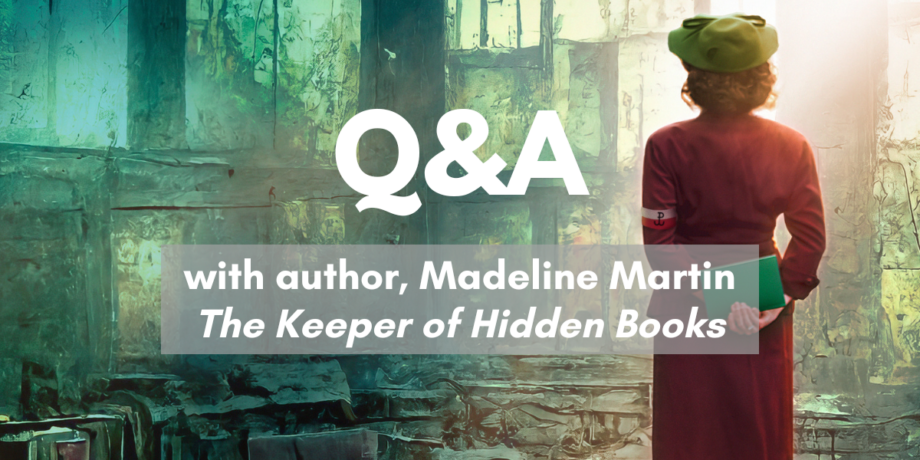
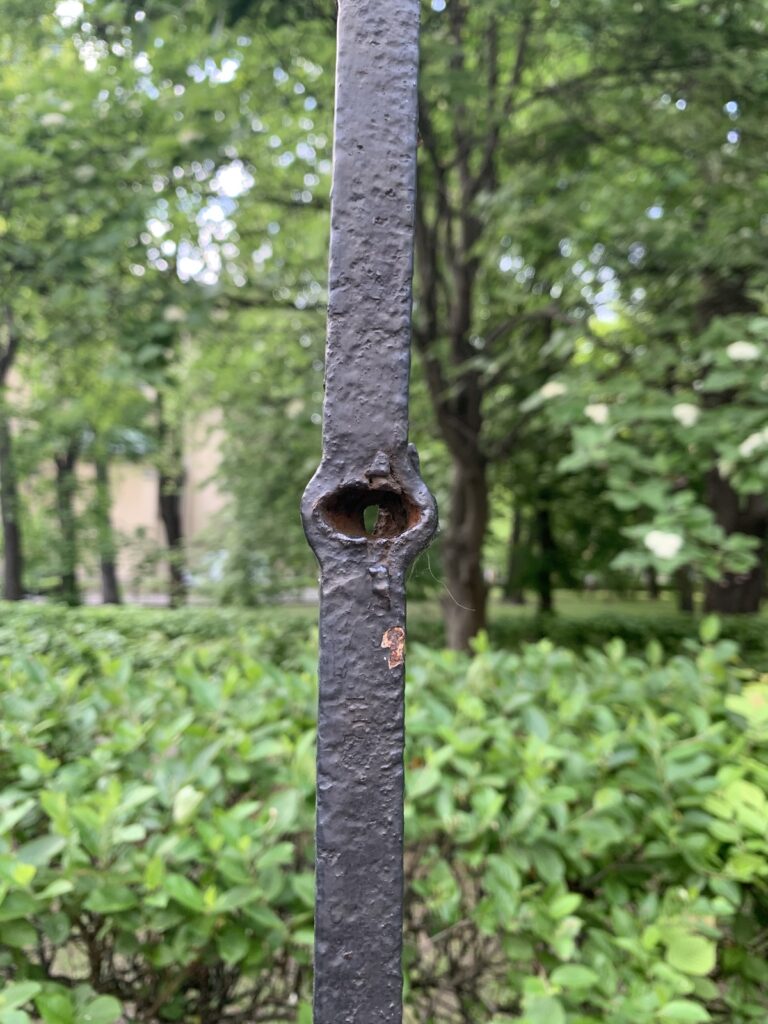
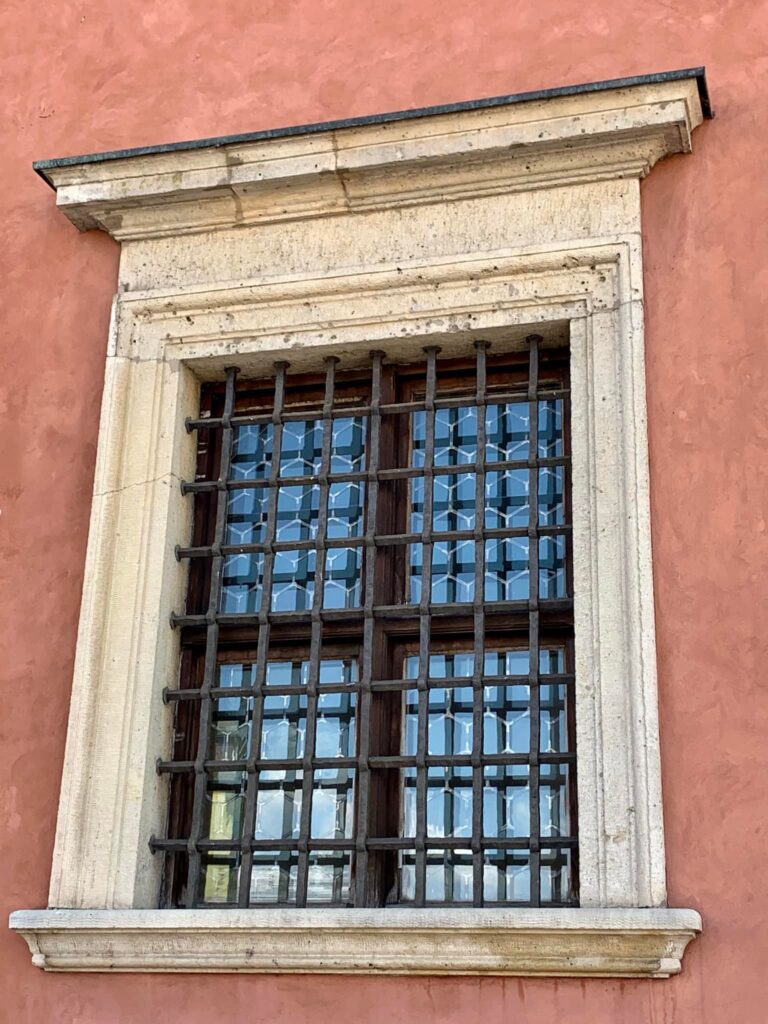
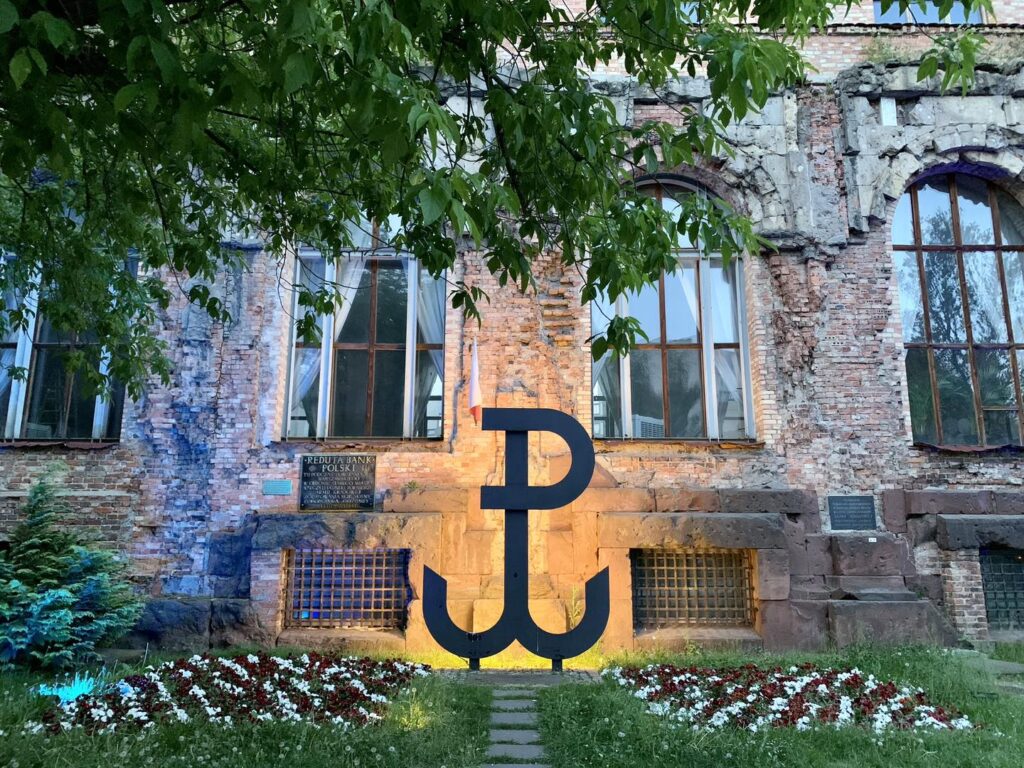

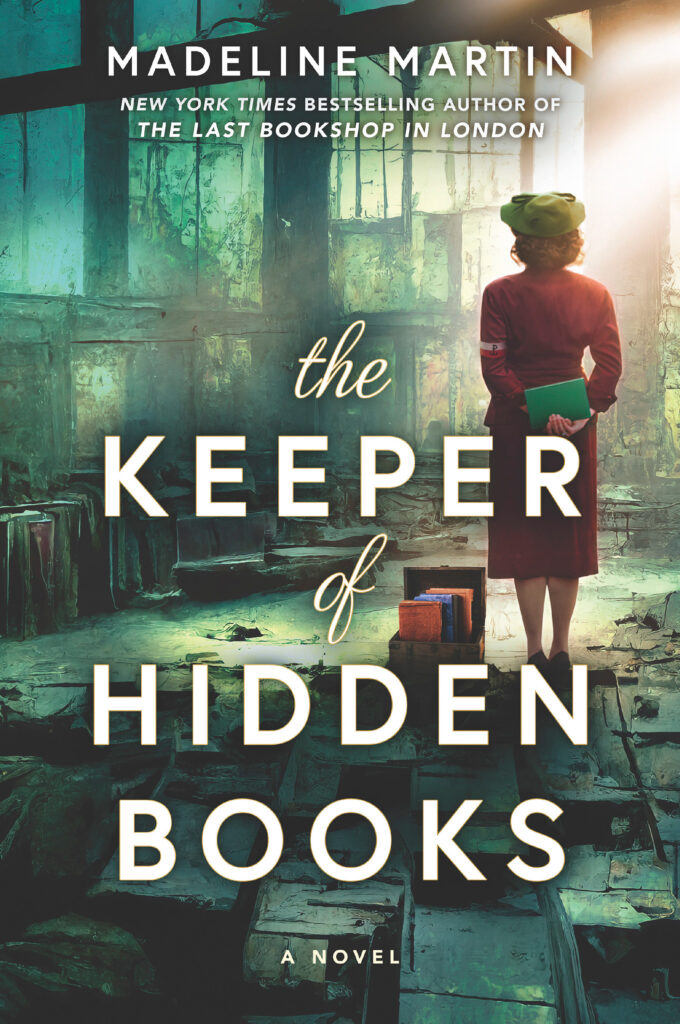
Absolutely loved this historical novel and learning about what actually happened in Poland during that time – now I’ll share with others and encourage The Keeper of Hidden Books.
Is there a reference list with all the books mentioned?
Yes, I would like the list of books, too.
I found this list at https://madelinemartin.com/wp-content/uploads/2024/03/2524-no-code-THE-KEEPER-OF-HIDDEN-BOOKS-Reader-s-Guide.pdf
BOOKS READ BY THE BANDIT BOOK CLUB
The Story of My Life by Helen Keller
The Metamorphosis by Franz Kafka
All Quiet on the Western Front
by Erich Maria Remarque
War and Peace by Leo Tolstoy
Les Misérables by Victor Hugo
Teutonic Knights by Henryk Sienkiewicz
The Street of Crocodiles by Bruno Schulz
Gone with the Wind by Margaret Mitchell
The Bridge of San Luis Rey
by Thornton Wilder
Brave New World by Aldous Huxley
The Time Machine by H. G. Wells
The Invisible Man by H. G. Wells